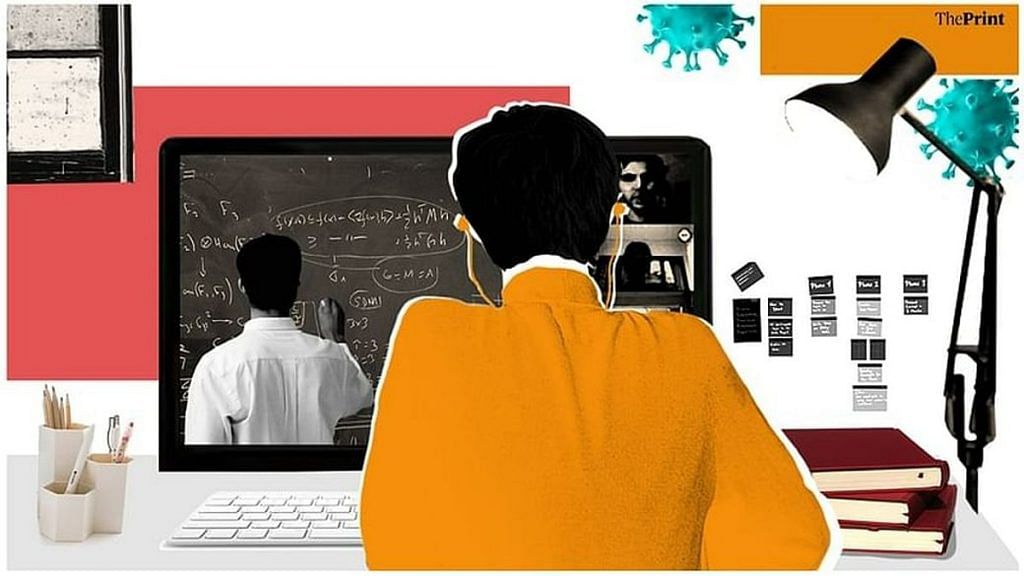New Delhi: A large number of teachers from both public and private schools in India believe that online learning — necessitated by the Covid-19 pandemic — has given them a better work-life balance, a study conducted by tech company Hewlett-Packard (HP) has found.
The study found that 92 per cent of the teachers surveyed believe they now have a better work-life balance.
Moreover, most teachers prefer if students use a personal computer (desktop or laptop) rather than a smaller device like a tablet or a smartphone, for online classes.
The study — whose findings were released by HP Thursday — was based on a survey of around 1,600 respondents.
The respondents included 207 teachers from public and private schools, aged between 28 and 50 years; 711 students aged 14–22 years, including those in colleges and higher education institutions; and 679 parents aged 30–60 years.
The survey interviews were conducted in 13 cities including Delhi/NCR, Mumbai, Chennai, Kolkata, Hyderabad, Bengaluru, Lucknow, Chandigarh, Patna, Guwahati, Indore, Ranchi and Kochi. The participants were allowed to give multiple responses.
Also Read: NCERT to cut syllabus for 2022-23, to ease load for students amid Covid disruption
Advantages of WFH
Ninety per cent of the teachers surveyed said online learning helps them save on commuting time, which in turn enables them to conduct more classes. A total of 89 per cent teachers felt online learning helps clear students’ doubts on a more convenient and flexible time schedule, while 88 per cent said digital tools help them better explain concepts to students.
While 88 per cent teachers preferred that students use a personal computer (PC) instead of a tablet or smartphone to study, 79 per cent recommended that students using handheld devices should switch to PCs for a better online learning experience.
However, more than half (53 per cent) of the students surveyed said they use a smartphone during online classes, while 44 per cent use a PC and only 3 per cent use a tablet. Forty-seven per cent students said they would want to switch to a PC, but 56 per cent of parents wanted their child to switch to a PC.
According to the teachers’ responses, they want students to switch to PCs due to various reasons. While 87 per cent said this would help reduce eye strain, 81 per cent said PCs make it easier to refer to multiple files, and 82 per cent said they enable multiple functionalities for better learning.
Hybrid model of learning
Most students, teachers, and parents don’t want education to remain purely online. The survey showed that most respondents would prefer a hybrid model where both physical classrooms and online learning occur, especially when inclement weather, law and order issues, or a pandemic can hinder physical movement.
While 85 per cent teachers and 89 per cent parents would like to continue or recommend some form of online learning to supplement traditional learning methods even after students return to physical classrooms, only 68 per cent students want the same.
Majority students want to go back to classrooms. A total of 77 per cent said they wanted to do so to be physically around their classmates and make more friends, as well as study better due to the physical presence of teachers.
Meanwhile, 76 per cent students said they want to go back to school so there is more interaction with schoolmates and they can play sports, while 72 per cent said so in order to resume co-curricular activities.
(Edited by Gitanjali Das)
Also Read: Online learning is the future. Education ministry and UGC must not hold India back anymore
